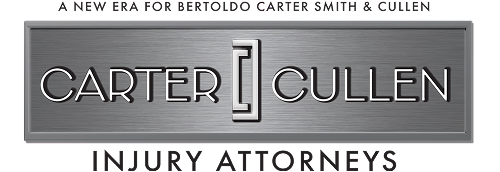Contents
show
Contents
show
We Are Available to Help You 24/7 – Se Habla Español

Bertoldo Carter Smith & Cullen is now Carter Cullen Injury Attorneys. Our attorneys, values, and commitment to our clients remain the same.